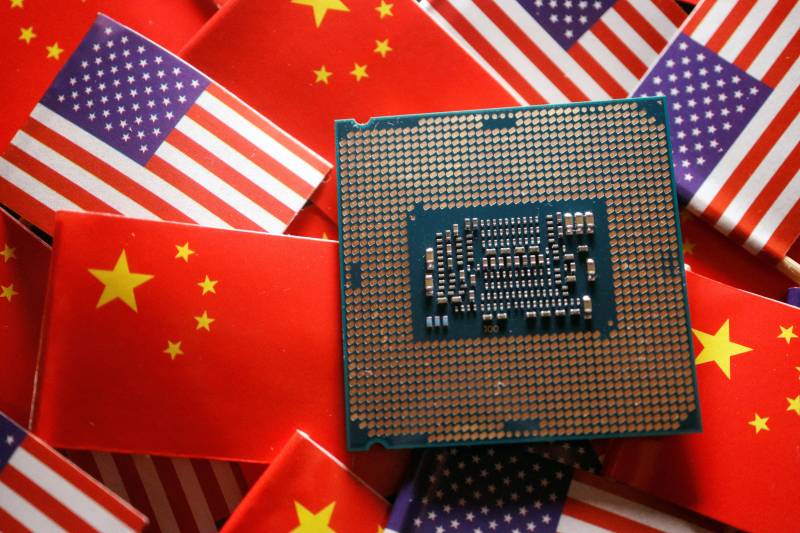
In the midst of rising geopolitical tensions and reversion to protectionism, the Biden administration has unveiled a set of rules and regulations to restrict outbound investment in the Chinese technology industry. The rules intend to curb American investment from being used to bolster China’s military technological capabilities, particularly in weapons targeting, government surveillance and intelligence gathering.
What do the rules say and when will they apply?
The rules, outlined by the Treasury Department, would prohibit US investors – institutional and otherwise – to invest in Chinese companies involved in the research and development of semiconductors, quantum computing and artificial intelligence. The rules will apply to equity investments, joint ventures and to debt financing that has convertibility into equity.
The proposed rules, scheduled to come into force later this year, follow President Joe Biden’s executive order from August 2023, which sought to ban American investment, particularly from venture capital and private equity firms, in critical technology sector firms that could bolster Beijing’s military capabilities.
As part of the rules, investors will have to notify the Treasury Department about certain transactions, while others are expressly forbidden. The Treasury Department will also gain the regulatory power to force divestment and to refer violations of the rules to the Justice Department for criminal prosecution.
The suggested rules follow a sharp increase in tariffs on Chinese imports into the United States, including electric vehicles, solar panels and batteries.
Lawmakers in Congress are also simultaneously working on an investment screening program that would mandate scrutiny of nearly all investments in the Chinese technology sector by law.
Why do these rules matter?
The United States and China seem to be increasingly locked in a geopolitical rivalry and competition.
Starting with the Donald Trump administration, the United States has embraced policy to discourage imports from China under the pretext of protecting and repatriating American jobs, and insulating America from national security threats.
Ever since Trump imposed tariffs on Chinese goods, China’s share in American imports fell from 22% in 2018 to just 14% in 2023. After assuming the President’s office, Biden did not remove the tariffs Trump had imposed on nearly $300 billion of Chinese imports, and instead has added others, particularly on clean energy products where China is seen as having manufacturing dominance and overcapacity.
This process of economic decoupling seeks to disentangle nearly three decades of deeply intertwined economic relations that have existed between the two economic behemoths. This change in policy has been triggered on by a growing consensus in Washington that China’s growing economic dominance, and the expansionism that it is fueling has serious implications for global American leadership and the preponderance of American economic might.
Policymakers and government officials across Western capitals worry that China’s sheer dominance and industrial strength has created structural imbalances and asymmetrical dependencies, damaging American and European firms’ ability to compete globally.
The Biden administration has been keen to emphasize that their efforts are intended towards “de-risking,” and not total economic decoupling. The extent to which the two policies are dissimilar is somewhat unclear however, as any American dependence on China centric supply chains can be viewed as a matter of national and economic security.
Critics of the American decoupling/de-risking approach argue that while the global economy has become more complex, policymaking expertise is lagging, creating a “dilemma similar to the one surgeons faced at the dawn of the age of modern medicine: pressing demand to fix problems but limited knowledge of how to do so.”
In the era of globalization that began after the collapse of the Soviet Union in 1991, the US administrative state’s economic expertise more or less shrank, as there was a widespread consensus that markets knew better than government regulators.
Abraham Newman and Henry Farrell argue that the risk this creates for the status quo is that American policymakers are likely to embrace Cold War logic in the management of their economic relationship and geopolitical rivalry with China.
Despite the potential for missteps, American foreign policy officials are insistent that their chosen path – a retreat from free-market liberalization and trade openness – is in the national interest.
US National Security Adviser Jake Sullivan said in April 2023 that “ignoring economic dependencies that had built up over the decades of liberalization had become really perilous—from energy uncertainty in Europe to supply-chain vulnerabilities in medical equipment, semiconductors, and critical minerals… these were the kinds of dependencies that could be exploited for economic or geopolitical leverage."

